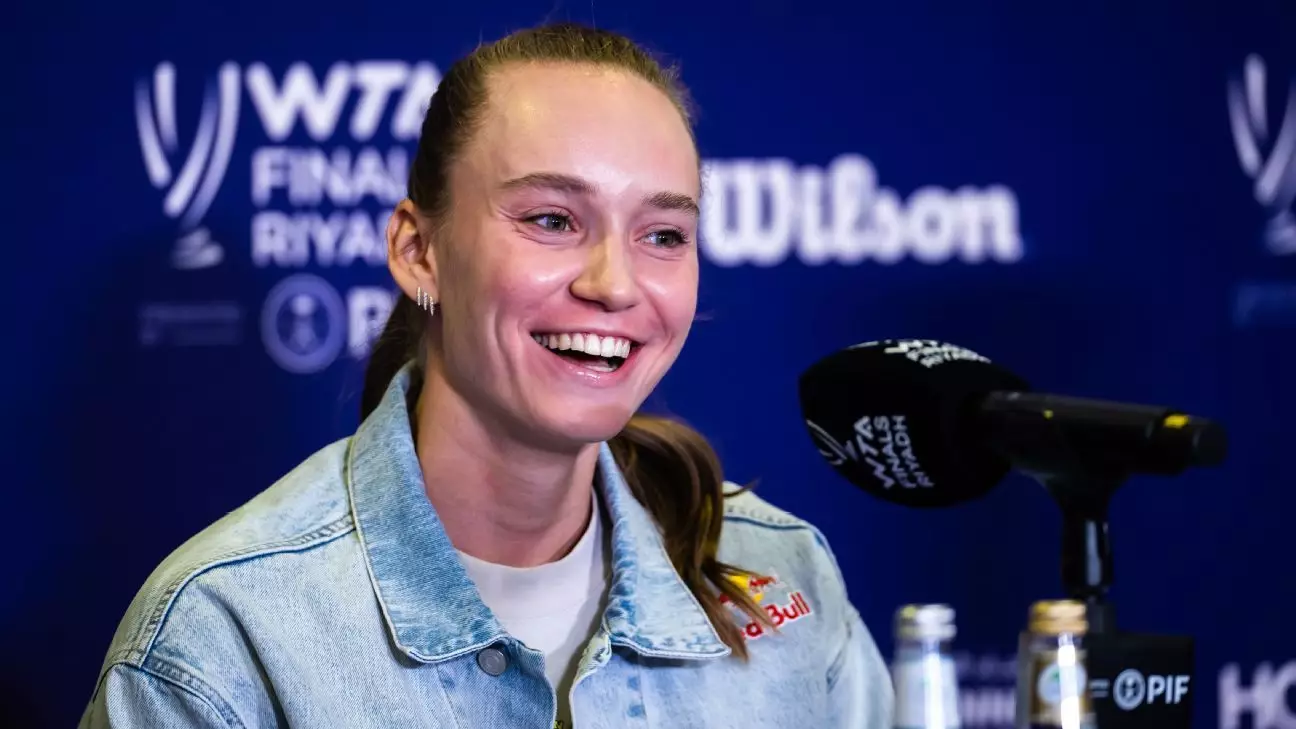In an exciting turn of events for the world of tennis, Elena Rybakina, currently positioned as the No. 5 player globally, has announced her partnership with Goran Ivanisevic, the esteemed coach formerly associated with Novak Djokovic. This collaboration is set to commence with the 2025 season, marking a pivotal moment in Rybakina’s ongoing journey on the WTA Tour. Ivanisevic’s past achievements, particularly his instrumental role in Djokovic’s remarkable career—culminating in nine Grand Slam victories—provides Rybakina with a wealth of experience to draw upon as she seeks to elevate her game.
Transitioning from one coach to another is never a simple endeavor in professional sports, and it often comes with a blend of excitement and apprehension. The 25-year-old Rybakina recently ended a lengthy partnership with Stefano Vukov, a move that occurred mere days prior to the crucial US Open. Commenting on her decision to shift coaches, she expressed optimism about the potential benefits of working with Ivanisevic, highlighting his championship pedigree and expansive knowledge of the game. “For me, it was important to get better. … It’s a big change, but I think it’s going to be a good change,” Rybakina remarked, suggesting her readiness to embrace new strategies and perspectives.
Goran Ivanisevic is about to embark on a new journey as he steps into the WTA arena. Known for his powerful serve and charismatic personality, the former Wimbledon champion has a unique insight into what it takes to succeed at the highest level of competition. His announcement of working with Rybakina was met with enthusiasm as he took to social media to express his eagerness for this fresh opportunity in women’s tennis. His return signals not only a chance for Rybakina to benefit from his vast experience, but also represents a growing trend where male coaches increasingly guide female players, enhancing cross-gender collaboration in tennis.
While Rybakina’s potential seems boundless, 2024 was a rollercoaster for her as she faced various injuries and illnesses that hampered her participation in pivotal tournaments. Despite winning titles in Brisbane, Abu Dhabi, and Stuttgart earlier in the season, her ability to compete at the highest level was stymied as she withdrew from significant events like the Paris Olympics and the US Open due to health concerns. This season’s challenges may serve as valuable lessons for both Rybakina and Ivanisevic, enabling them to develop a strategy that prioritizes fitness and resilience alongside technical prowess.
As the WTA Finals approach, Rybakina is set to face off against fourth-ranked Jasmine Paolini, marking her first match under Ivanisevic’s guidance. This upcoming competition is not just a test of skill; it serves as an early indicator of the impact their partnership might yield. With their combined talents and Rybakina’s history of success, it’s clear that this new collaboration holds promise. Tennis enthusiasts worldwide will be watching closely, hopeful for a fruitful future as Rybakina and Ivanisevic forge a new path in their respective careers.

